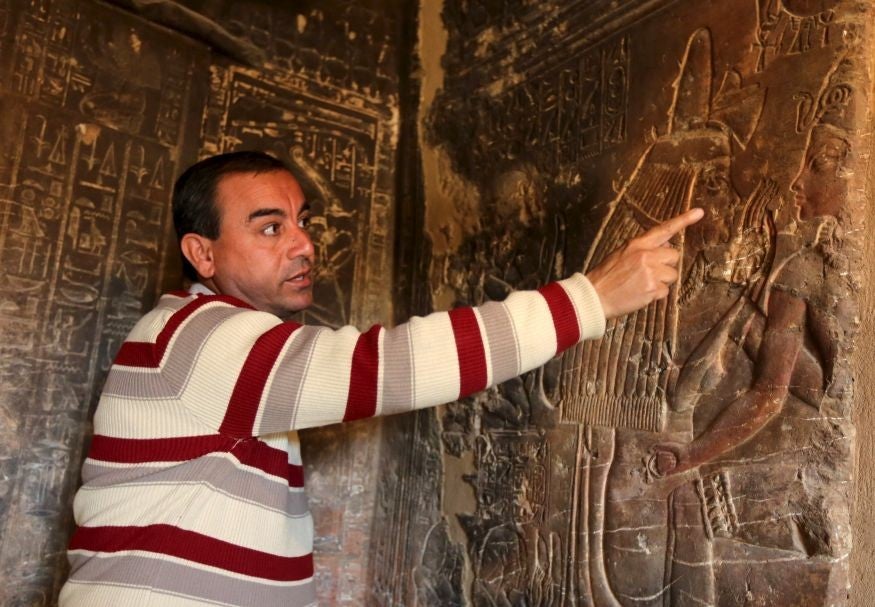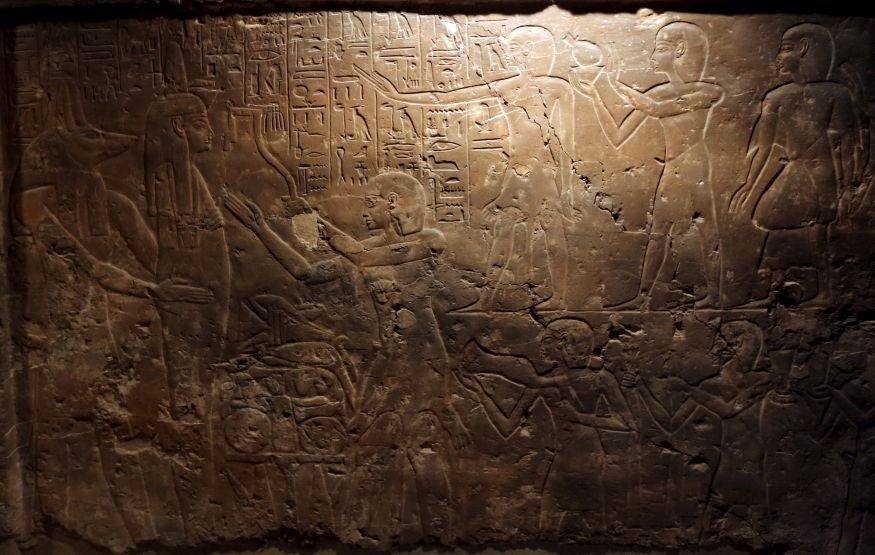Tutankhamun's half-sister Meritaten might have also been his wet nurse, archaeologists say
Carvings of the boy-king on her tomb showed a distinct physical similarity to Maya - the woman believed to have been his wet nurse

Your support helps us to tell the story
From reproductive rights to climate change to Big Tech, The Independent is on the ground when the story is developing. Whether it's investigating the financials of Elon Musk's pro-Trump PAC or producing our latest documentary, 'The A Word', which shines a light on the American women fighting for reproductive rights, we know how important it is to parse out the facts from the messaging.
At such a critical moment in US history, we need reporters on the ground. Your donation allows us to keep sending journalists to speak to both sides of the story.
The Independent is trusted by Americans across the entire political spectrum. And unlike many other quality news outlets, we choose not to lock Americans out of our reporting and analysis with paywalls. We believe quality journalism should be available to everyone, paid for by those who can afford it.
Your support makes all the difference.Archaeologists studying the tomb of the Egyptian boy-pharaoh Tutankhamun’s wet nurse Maya say she may have actually been his half-sister Meritaten.
On Sunday, French archaeologist Alain Zivie announced his findings as he unveiled Maya’s tomb to journalists ahead of its public opening next month.
Dr Zivie discovered her tomb in 1996 at Saqqara, a necropolis about 12m (20km) south of Cairo.
She was believed to be the wet nurse of Tutankhamun - whose mummy was famously discovered by British archaeologist Howard Carter in the Valley of Kings in Luxor in 1922.
Dr Zivie said his conclusion about Maya’s identity is based on carvings of her and Tutankhamun on the walls of her tomb.

He told AFP: “The extraordinary thing is that they are very similar. They have the same chin, the eyes, the family traits.
“The carvings show Maya sitting on the royal throne and he is sitting on her”.
Egyptian Antiquities Minister, Mamdouh el-Damaty said the tomb included scenes of Maya nursing her brother.
The mummy of Meritaten/Maya has not been found so far but Mr el-Damaty has suggested it could be in a secret chamber in Tutankhamun’s tomb.
Meritaten was the daughter of the Pharaoh Akhenaten and his queen Nefertiti - DNA testing in 2010 showed Akhenaten was Tutankhamun’s father but Nefertiti is believed to have been his stepmother.
Tutankhamun died in around 1323BC at the age of 19 after reigning for approximately nine years.
Additional reporting by the Associated Press
Join our commenting forum
Join thought-provoking conversations, follow other Independent readers and see their replies
Comments